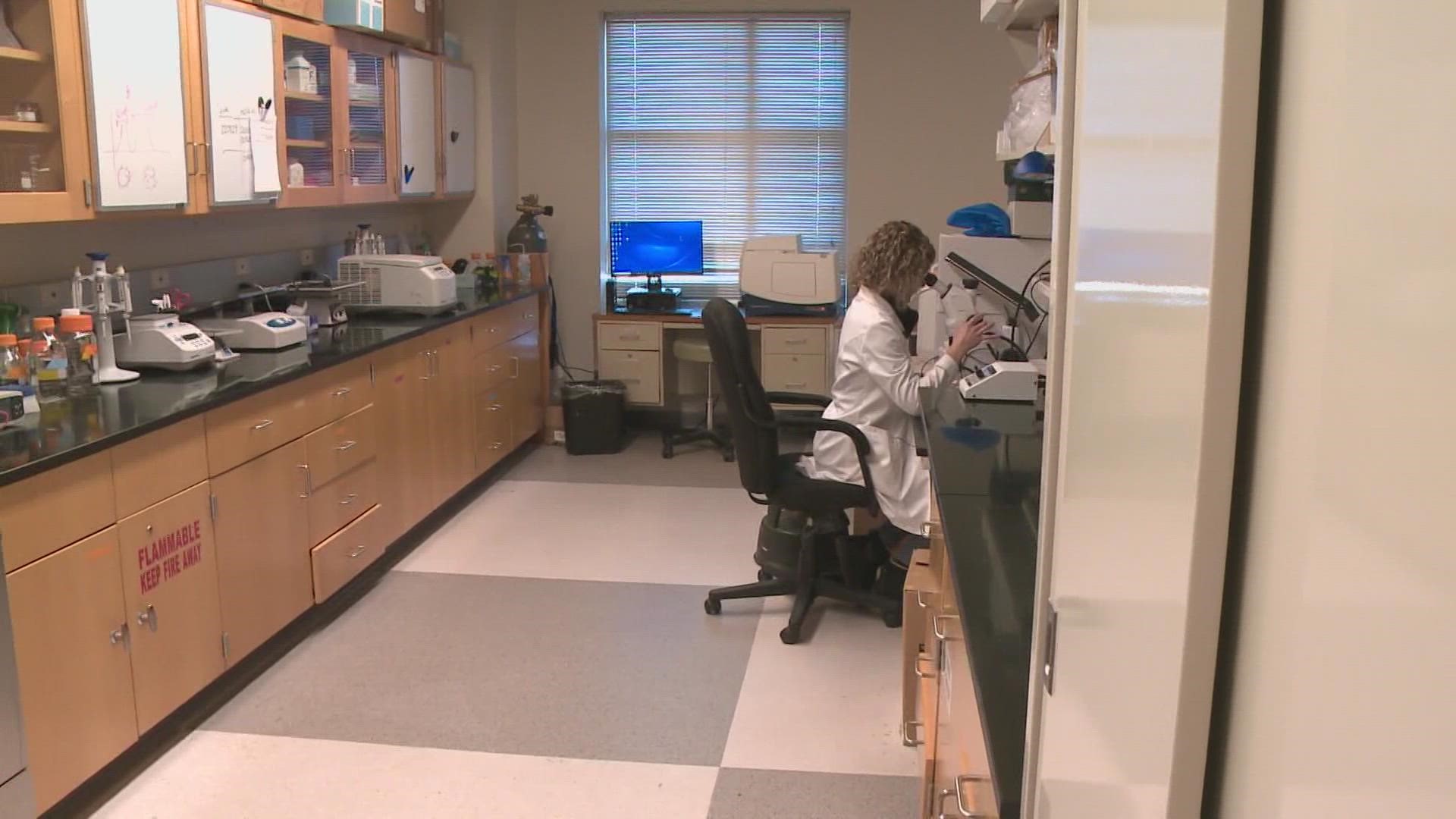BIDDEFORD, Maine — It's considered a life-saving treatment for millions of patients, but the side effects of chemotherapy, including debilitating pain, can be very difficult to manage.
A five-year study underway at the University of New England is looking at ways of using the body's own immune cells to fight pain.
Some studies have found more than 60 percent of patients who undergo chemotherapy develop peripheral neuropathy, pain, numbness, and tingling in the hands and feet that sometimes doesn't go away over time
Finding a therapy to block the pain is the goal of a study headed up by University of New England researcher, Diana Goode.
"As of right now, there is nothing really on the market to help these patients," Goode said.
Goode, an assistant professor of immunology in UNE's College of Osteopathic Medicine, recently received 1.7 million dollars in funding to study ways the body's immune system can fight the pain before it even starts.
"We hope to only activate those cells in the peripheral nervous system without affecting the immune cells you need to kill cancer," Goode explained.
Animal studies are underway for developing a potential treatment that could be given to patients to reduce pain before they receive the lifesaving treatment.
"When you are already in so much pain and have to go through so much more, it's dehumanizing," Meg Libby, a cancer survivor explained.
Meg Libby endured debilitating shooting pain in her hands and feet during rounds of chemotherapy when fighting endometrial and ovarian cancer seven years ago. The mother of two recently underwent chemotherapy again to treat lupus, an auto-immune disorder, but had to stop treatment.
"I can barely move my left wrist right now from just the pain, everything, the numbness, the tingling," Libby said. She is grateful researchers are trying to find treatments to suppress the pain.
The funding will cover five years of research, and scientists hope to conduct human trials.
In the meantime, Goode is working with oncologists here in Maine who plan to send her lab samples from cancer patients for her team to analyze. Researchers plan to publish their findings from the animal studies in January.
For more information on the study go here.

